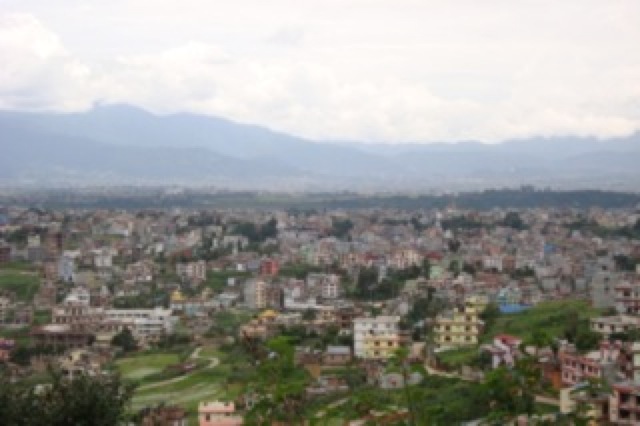Last few weeks in the office

Despite coming to the end of my internship, my last few weeks at work have been interesting ones. Unfortunately, not much has changed politically in Nepal, and little progress has been made toward resolving the political deadlock surrounding restarting the constitution writing process. The Prime Minister is sticking to his original plan of attempting to hold elections for a new Constituent Assembly. The opposition meanwhile has continued to deny that the Prime Minister has the authority to call for new elections or even has the authority to continue governing in the absence of the legislature.
The opposition has also become more mobilized in recent weeks calling numerous bandhas around Kathmandu that disrupt travel and business in the city. I have yet to witness one of these protests, but my understanding from asking people in the office is that supporters form a human barrier and physically prevent any vehicles from passing on the roads. These protests also have the potential to turn violent. A couple of weeks ago one of the people I work with in the office told me that during a bandha near her house one man had his motorcycle set on fire while he attempted to drive through the protest. It appears from these protests that the political situation may be becoming a bit more tense after being fairly quiet for the majority of my time here.
During the past few weeks, the office has continued to play a role holding sessions encouraging the parties to come together and negotiate a way to move forward. My role in this has involved attending these events and continuing my research on how to get the constitution writing process started again. I finished my report on this last week. My research has shown that the situation in Nepal is in no way unique as many other countries have gone through similar trials in their constitution writing process and have ultimately been successful. Several of these countries provided interesting strategies that be used to fix some of the errors that existed in Nepal's previous writing process. The difficulty with many of these strategies is going to be getting the political parties to accept them. The parties had a tremendous amount of power in the last writing process and many of these strategies are designed to reduce the power that the parties have.
The political conflict mentioned above has also led many people to call on the President to play a greater role in governing in order to balance the Prime Minister. The problem with this is that the Interim Constitution does not do a good job of oulining the relationship between the President and Prime Minister. As a result the President has asked IDEA to do a study to help define this relationship. I had the opportunity to play a role in designing this study. My primary work consisted of developing the questions that need to be asked and outlining the scope of the research. This was actually a really interesting experience for me because I usually just play a role in doing research rather than helping to the design the study. I wish that I was going to be here long enough to participate in the actual research because the subject seems really interesting.